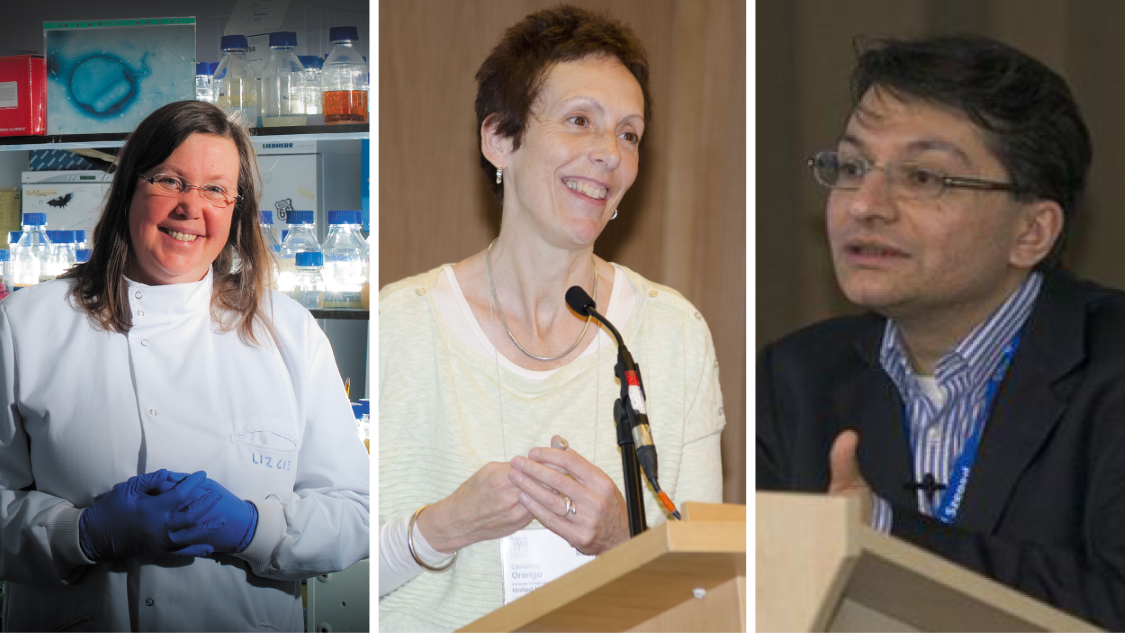News
RSB Fellows elected as Fellows of the Royal Society
- Details
- 18 April 2019
Three Royal Society of Biology Fellows have been elected as Fellows of the Royal Society.
Professor Christine Orengo FRS FRSB, Professor Anant Bhikhu Parekh FRS FRSB and Professor Liz Sockett FRS FRSB have all been recognised for their exceptional commitment to science.
Rachel Lambert-Forsyth CBiol FRSB, director of membership and professional affairs at the RSB, offered her congratulations to the Fellows: “We are always delighted when our members are recognised for their work to support the development and understanding of the life sciences.
“We would like to express our warmest congratulations to Professor Sockett, Professor Orengo and Professor Oarekh on their well-deserved Fellowship of the Royal Society.”

From left to right: Professor Liz Sockett FRS FRSB, Professor Christine Orengo FRS FRSB and Professor Anant Bhikhu Parekh FRS FRSB
Professor Christine Orengo FRS FRSB, is professor of structural bioinformatics, division of biosciences, University College London.
Professor Orengo runs a research group at UCL that is developing computational methods for classifying proteins into evolutionary families, with her group’s research providing data for further studies on cancer, angiogenesis, cell-signalling and differentiation.
Professor Orengo is also well-known for the development of the CATH Protein Structure Classification database, a free, publicly available online resource that provides information on the evolutionary relationships of protein domains.
Professor Anant Bhikhu Parekh FRS FRSB is professor of physiology, department of physiology, anatomy and genetics at the University of Oxford.
Professor Parekh’s research focusses on intracellular calcium signalling, and the cellular responses induced by changes in cellular calcium levels. Professor Parekh and his team have studied how calcium channels embedded in the cellular membrane interact with organelles, and how changes to these processes may result in human disease.
Professor Liz Sockett FRS FRSB is professor of bacterial genetics and Wellcome Trust investigator, at the University of Nottingham school of life sciences. Professor Sockett’s research group studies Bdellovibrio bacteriovorus, a bacterium that invades and eats other pathogenic bacterial strains that cause skin ulcers, and pressure sore infections.
Professor Sockett and her team are looking to establish the use of this bacteria as a treatment for other bacterial infections in humans, animals and plants. She was recently interviewed by The Biologist for her work on developing a “living antibiotic.”
51 eminent scientists have been elected as Fellows of the Royal Society this year, as well as ten new Foreign Members and one Honorary Fellow, for their distinguished service.

